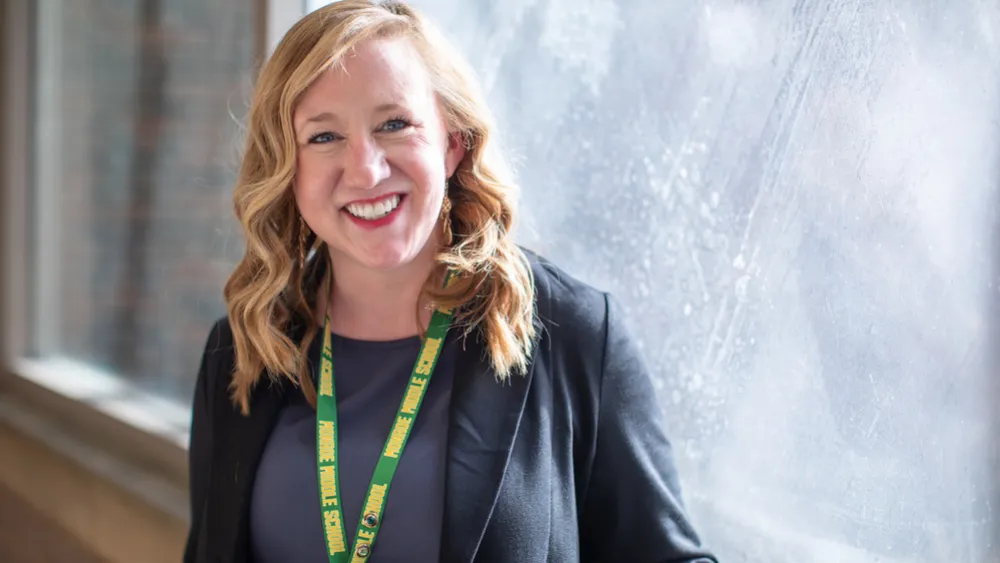The Meaning of Care Magazine
During Challenging Times, Methodist Hospital Community Counseling Program Connects Students and Counselors
Published: March 16, 2022

Counselor Julie Lord, MS, LIMHP, LMHP, sees it firsthand – students struggling through the loss, anxiety and isolation of a global pandemic. She’s grateful she can meet them where they are.
“Having additional support at school is huge for so many students,” Lord said. She is one of 18 state-licensed, master’s level counselors who are impacting young lives through the Methodist Hospital Community Counseling Program.
The only one of its kind in Omaha, the program has provided counseling in all Omaha Public Schools high schools, middle schools and alternative programs since 1996. Challenges over the last two years only underscore its importance. Counselors are seeing climbing rates of depression, anxiety and suicidal thoughts. Bouts of isolation are also taking a toll. In some cases, students have forgotten socially appropriate public behavior.
“Some students have lost sight of social norms, creating more stress for teachers,” said program manager Ellen McElderry, LIMHP, LADC. “We’re also seeing school behaviors become more aggressive. Some high school and middle school students are just walking out of class or getting into fights in the classroom.”
Lord has an office at Monroe Middle School. Her full caseload includes students who need help re-engaging in normal social and peer interactions. She takes a highly individualized approach to supporting them and others.
“We work to identify the areas where they’re struggling socially or academically, help them cope with their symptoms and build a toolbox of skills they can use to adjust to changes,” Lord said.
Last year, the program’s counselors conducted more than 8,100 counseling sessions, including work with adults and families at several community locations. With support from Methodist Hospital Foundation donors, the program ensures that no client is turned away due to an inability to pay.
“A lot of the families we see struggle with transportation or have time constraints or other challenges that make getting to after-school therapy appointments difficult,” Lord said. “Our program provides a solution to some of those barriers.”
She and her colleagues are confident their work is changing the trajectory of young lives.
“I feel this program is guiding my niece to success in the future,” one grateful aunt wrote. “You’ve shown her she has meaning and is cared for.”
To help support the Community Counseling Program and its efforts to meet students where they are, visit SupportMethodist.org. Please note “Methodist Community Counseling” in the comments.
More Resources
- Read more from the spring 2022 issue of The Meaning of Care Magazine.
- Learn more about the Methodist Hospital Community Counseling Program.
- Learn more about Methodist Hospital Foundation.

